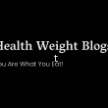
Welcome to Oral Health 101! Taking care of your teeth and gums is essential for maintaining good oral health. This blog post will provide you with all the information you need to know about proper oral hygiene and what steps you should take to ensure that your teeth and gums stay healthy. We’ll discuss everything from brushing and flossing techniques to diet and lifestyle tips that will help you achieve and maintain a healthy smile. So, let’s get started and learn how to keep your oral health in tip-top shape!
Why Oral Health is Important
Welcome to Oral Health 101! Taking care of your teeth and gums is essential for maintaining good oral health. But did you know that oral health also has a significant impact on your overall health and well-being?
Poor oral health can lead to various dental problems, such as cavities, gum disease, and tooth loss. These issues can cause pain and discomfort and affect your ability to eat and speak properly. Moreover, untreated dental problems can lead to serious health conditions such as heart disease, stroke, and respiratory problems.
That’s why it’s crucial to establish a good dental hygiene routine and take care of your teeth and gums every day. In addition to preventing dental problems, good oral health also contributes to better overall health and quality of life.
So, make sure to prioritize your oral health and follow these simple tips to keep your teeth and gums healthy and strong.
Daily Dental Hygiene Routine
Maintaining good oral health is crucial for a healthy smile and overall well-being. A daily dental hygiene routine is the foundation of good oral health. Oral Health 101 includes brushing your teeth at least twice a day with fluoride toothpaste and flossing daily to remove plaque and food particles that may cause tooth decay and gum disease.
Brushing your teeth correctly is crucial to maintaining good oral health. Be sure to use a soft-bristled brush and brush your teeth gently in a circular motion. You should brush for at least two minutes, making sure to brush all surfaces of your teeth, including the front, back, and chewing surfaces.
After brushing, use mouthwash to rinse your mouth. Mouthwash can help remove any remaining bacteria and freshen your breath. Be sure to choose a mouthwash that is alcohol-free and contains fluoride.
Don’t forget about your tongue! Bacteria can accumulate on your tongue, causing bad breath and oral health problems. Use a tongue scraper or your toothbrush to gently clean your tongue.
In addition to brushing and flossing, maintaining a healthy diet is also essential for oral health. Limit sugary and acidic foods and drinks, and make sure to consume plenty of fruits and vegetables. Foods high in calcium, such as dairy products, can help strengthen your teeth and gums.
Overall, a daily dental hygiene routine is essential for maintaining good oral health. Be sure to brush and floss regularly, use mouthwash, clean your tongue, and maintain a healthy diet. By following these simple steps, you can keep your teeth and gums healthy and your smile bright.
Importance of Flossing
As part of Oral Health 101, flossing is an essential component of maintaining healthy teeth and gums. While brushing is effective in removing plaque from the surface of the teeth, flossing helps to clean the areas that a toothbrush cannot reach, such as the tight spaces between the teeth and underneath the gum line.
Without regular flossing, bacteria can accumulate in these areas, leading to the formation of plaque and tartar, which can ultimately lead to gum disease, cavities, and even tooth loss. Additionally, flossing can help freshen breath by removing trapped food particles that can cause bad breath.
It’s important to note that flossing should be done at least once a day, preferably before bedtime. If you have trouble flossing with traditional string floss, there are other options, such as floss picks or water flossers, that can make the process easier and more comfortable.
Incorporating flossing into your daily dental hygiene routine is crucial for maintaining optimal oral health and preventing dental problems down the line. So next time you brush your teeth, don’t forget to grab that floss and give your smile the care it deserves.
Healthy Eating for Oral Health
Oral Health 101 emphasizes the importance of healthy eating habits for maintaining healthy teeth and gums. Consuming foods that are rich in nutrients like calcium and vitamins D and C helps to strengthen teeth and promote healthy gum tissue.
Calcium-rich foods such as cheese, yogurt, and leafy green vegetables help strengthen teeth and bones. Vitamin D helps the body absorb calcium, so foods such as egg yolks, fatty fish, and fortified cereals are great sources. Vitamin C, found in citrus fruits, strawberries, and peppers, helps to promote healthy gums.
Avoiding sugary and acidic foods is also crucial for maintaining good oral health. These types of foods and drinks can contribute to tooth decay and the erosion of tooth enamel. Limiting the intake of candy, soda, and fruit juices helps prevent these problems.
Drinking plenty of water is another key factor in promoting good oral health. It helps to wash away food particles and bacteria that can cause tooth decay and gum disease.
Remember, a healthy diet is just one part of a comprehensive oral health routine. Brushing, flossing, and regular dental check-ups are also crucial for maintaining healthy teeth and gums. By making healthy choices and following a daily oral hygiene routine, you can enjoy a healthy smile for years to come.
Regular Dental Check-ups and Cleanings
Oral Health 101 is all about taking proactive steps to ensure that your teeth and gums are healthy. This is where regular dental checkups and cleanings come into play.
Even with diligent at-home care, it is still necessary to see a dental professional at least twice a year for check-ups and cleanings. This is because dental professionals have the tools and expertise needed to thoroughly clean your teeth and check for any potential issues.
During a check-up, your dentist will examine your teeth and gums for signs of decay, gum disease, and other oral health issues. They may also take x-rays to get a better look at the overall health of your mouth.
Once any potential issues are identified, your dentist will work with you to come up with a treatment plan. This may include anything from fillings and extractions to more complex procedures like root canals or orthodontics.
In addition to check-ups, regular cleanings are also essential for maintaining good oral health. During a cleaning, your dental hygienist will use specialized tools to remove any built-up plaque and tartar from your teeth and gums. They may also polish your teeth to help remove surface stains and leave your smile looking bright and healthy.
Overall, regular dental checkups and cleanings are a crucial component of any good oral hygiene routine. By seeing a dental professional regularly, you can ensure that any potential issues are caught early and treated promptly, helping you maintain a healthy, happy smile for years to come.
How to Choose the Right Toothpaste and Mouthwash
Oral Health 101 wouldn’t be complete without discussing the importance of choosing the right toothpaste and mouthwash for your dental needs. With so many options available on the market, it can be overwhelming to select the best products for your oral health.
When it comes to toothpaste, there are many factors to consider, such as fluoride content, sensitivity, tartar control, whitening, and flavor. Fluoride toothpaste is essential, as it helps prevent cavities and tooth decay by strengthening the enamel. For those with sensitive teeth, using toothpaste with potassium nitrate can help alleviate discomfort.
Tartar control toothpaste contains active ingredients that prevent the buildup of tartar and plaque on teeth. Whitening toothpaste contains abrasives that remove surface stains, making teeth appear brighter. However, it is important to note that overuse of whitening toothpaste can lead to enamel erosion and tooth sensitivity.
Mouthwash is an excellent addition to any daily dental hygiene routine. It helps kill bacteria that can cause bad breath and gum disease. Choosing the right mouthwash can depend on the specific oral health needs you have. For those with gingivitis or periodontitis, using an antiseptic mouthwash containing chlorhexidine can help reduce inflammation and bacteria in the gums. Alcohol-free mouthwash is recommended for those with dry mouth, as it does not dry out the mouth.
Remember to always read labels carefully and speak to your dentist about any specific concerns you may have. Choosing the right toothpaste and mouthwash for your oral health needs is essential to maintaining healthy teeth and gums.
Avoiding Harmful Habits
Beyond brushing and flossing, there are practices that might damage your teeth and gums. It is essential to avoid these habits in order to preserve the health and integrity of your oral cavity.
The first harmful habit to avoid is smoking or using tobacco products. Tobacco use can cause gum disease, tooth decay, and even oral cancer. In fact, smokers are up to six times more likely to develop gum disease than non-smokers. If you are a smoker, quitting smoking or using tobacco products can significantly improve your oral health.
Another harmful habit to avoid is consuming sugary and acidic foods and drinks. These can cause enamel erosion, tooth decay, and gum disease. Instead, focus on consuming a well-balanced diet that includes fruits and vegetables, whole grains, lean protein, and healthy fats.
Finally, avoid grinding or clenching your teeth, as this can cause damage to your teeth and jaw. Stress is a common cause of this habit, so if you find yourself clenching or grinding your teeth, talk to your dentist about stress management techniques.
Overall, the key to maintaining good oral health is to be consistent with your daily dental hygiene routine, eat a healthy diet, and avoid harmful habits. By taking care of your teeth and gums, you can prevent dental problems and maintain a healthy and beautiful smile. Remember, oral health 101 is about being proactive and taking action to keep your mouth healthy.
If you want to learn more about teeth and gums, click here now....
About the Creator
Franco
Weight loss, Health, and diabetes can be a mental and emotional practice as well as a physical one! I am sharing some of the tips and research that helped me mentally on my journey. Content writer researcher. https://healthweightblogs.com






Comments
There are no comments for this story
Be the first to respond and start the conversation.